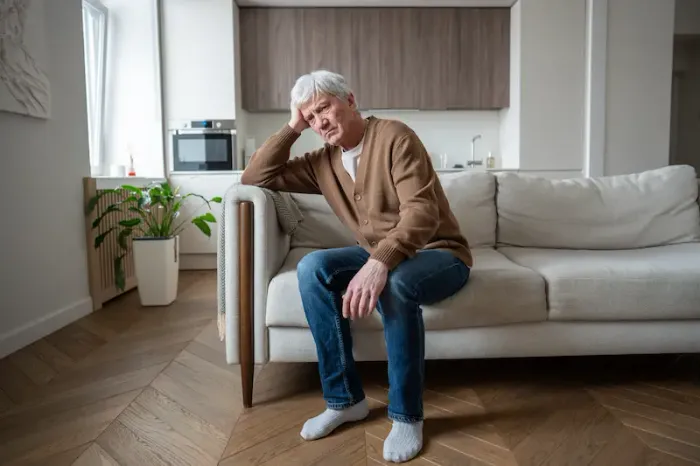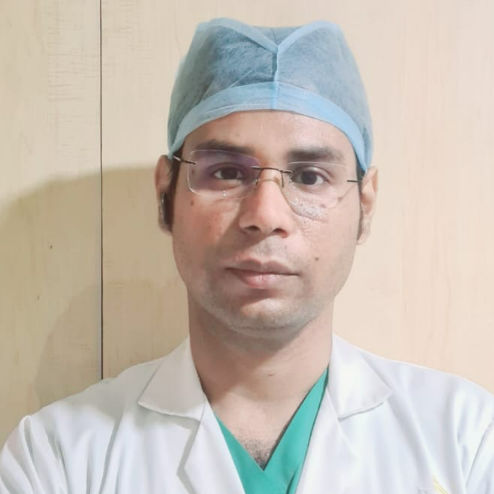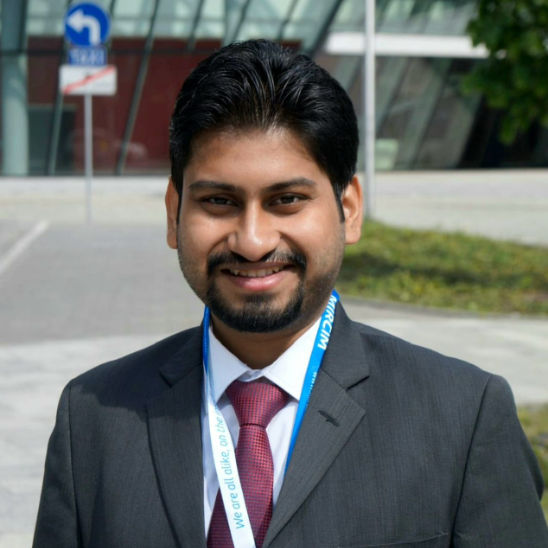Neurodegenerative Diseases Types, Early Signs, and Causes
Explore the different types, early signs, causes, and management of neurodegenerative diseases. Learn how to recognise symptoms and seek timely medical help.


Introduction
Watching a loved one slowly lose their memories or physical abilities is one of life's most challenging experiences. Neurodegenerative diseases are a group of disorders characterised by the progressive loss of structure or function of neurons, the building blocks of our nervous system. This gradual decline affects everything from thought and memory to movement and behaviour. Understanding the early signs, different types, and underlying causes is the first step towards seeking timely help and managing these conditions effectively. This guide will walk you through the key information about these diseases, empowering you with knowledge and highlighting when it's crucial to consult a medical professional.
What Are Neurodegenerative Diseases? The Basics
Neurodegenerative diseases are essentially conditions where nerve cells (neurons) in the brain or peripheral nervous system lose function over time and ultimately die. While treatments may help manage some symptoms, these diseases are currently incurable and progressive, meaning they worsen over time. They are a leading cause of disability and death among older adults, impacting millions of families worldwide.
The Simple Science: What Happens in the Brain?
Imagine your brain's neurons as a vast, intricate network of wires communicating through electrical and chemical signals. In neurodegenerative diseases, this communication network breaks down. Proteins that are normally helpful to the brain start to misfold and clump together, forming toxic aggregates like plaques and tangles. These clumps disrupt cellular communication, trigger inflammation, and eventually lead to the death of neurons. As these cells die, the brain regions they control begin to atrophy (shrink), leading to the specific symptoms associated with each disease.
Unmasking the Early Warning Signs
Recognising the early warning signs is critical, as it can lead to an earlier diagnosis and intervention. Symptoms can be subtle at first and are often mistaken for normal ageing.
Cognitive and Memory Red Flags
• Memory Loss That Disrupts Daily Life: Forgetting recently learned information, important dates or events, and repeatedly asking for the same information.
• Challenges in Planning or Problem Solving: Difficulty following a familiar recipe, managing monthly bills, or concentrating on complex tasks.
• Confusion with Time or Place: Losing track of dates, seasons, and the passage of time. Forgetting where they are or how they got there.
Physical and Movement Symptoms
• Tremors and Shaking: A slight shaking or tremor in a hand, finger, or foot, especially when at rest.
• Stiffness and Slowness of Movement (Bradykinesia): Movements may become slower, and walking may involve shuffling steps or reduced arm swing.
• Problems with Balance and Coordination: Increased unsteadiness, which can lead to a higher risk of falls.
Behavioural and Psychological Changes
• Withdrawal from Work or Social Activities: Avoiding hobbies, social engagements, or projects at work due to the challenges they now present.
• Changes in Mood and Personality: Becoming confused, suspicious, depressed, fearful, or anxious. They may be easily upset at home or outside their comfort zone.
Common Types of Neurodegenerative Diseases
While there are many forms, a few account for the majority of cases.
Alzheimer's Disease: The Most Prevalent Form
Accounting for 60–80% of dementia cases, Alzheimer's is primarily characterised by memory loss and cognitive decline. It is marked by the accumulation of amyloid-beta plaques outside neurons and tau tangles inside them, first affecting the hippocampus (the memory centre) before spreading.Consult a Neurologist for the best advice
Parkinson's Disease: Beyond the Tremors
Parkinson's is famously known for causing tremors, but its core features are bradykinesia (slowness of movement), muscle rigidity, and postural instability. It results from the loss of dopamine-producing neurons in a region called the substantia nigra. Non-motor symptoms like sleep problems, loss of smell, and depression are also common.
Amyotrophic Lateral Sclerosis (ALS): The Rapid Progression
Often called Lou Gehrig's disease, ALS is a rapidly progressive disease that affects motor neurons—the cells that control voluntary muscle movement. This leads to muscle weakening, twitching (fasciculations), and eventually, an inability to speak, eat, move, and breathe.
Huntington's Disease: The Genetic Link
This is an inherited condition caused by a single defective gene. It causes uncontrolled movements (chorea), emotional problems, and the loss of thinking ability (cognitive decline). Symptoms usually appear in mid-adulthood.
Other Notable Conditions
• Frontotemporal Dementia (FTD): Affects the frontal and temporal lobes, leading to changes in personality, behaviour, and language rather than memory first.
• Multiple System Atrophy (MSA): A rare disorder that affects both movement and involuntary bodily functions like blood pressure and bladder control.
What Triggers Neurodegeneration? Key Causes and Risk Factors
The exact cause of most neurodegenerative diseases remains unknown, but it's believed to be a complex mix of factors.
The Role of Genetics and Family History
For some, like Huntington's disease, a single genetic mutation is the direct cause. In others, like some cases of early-onset Alzheimer's, genes play a strong predisposing role. For most common forms, having a family history increases risk but does not guarantee you will develop the disease.
Age: The Biggest Risk Factor
The single greatest risk factor for diseases like Alzheimer's and Parkinson's is advancing age. The brain's ability to repair itself diminishes with age, making it more vulnerable to the processes that lead to neurodegeneration.
Environmental Triggers and Lifestyle Factors
Research suggests that a lifetime of exposure to certain toxins, pesticides, heavy metals, or previous head injuries may increase risk. Conversely, factors like a heart-healthy diet, regular physical and mental exercise, and strong social connections may have a protective effect.
The Protein Misfolding Theory
A central theory in neuroscience is that these diseases are "proteinopathies", where specific proteins misfold and accumulate. In Alzheimer's, it's amyloid and tau; in Parkinson's, it's alpha-synuclein (forming Lewy bodies); in ALS, it's TDP-43. These misfolded proteins are toxic to neurons.
Diagnosis and Seeking Professional Help
Diagnosing these conditions requires a comprehensive approach. There is no single test. Doctors use:
• Detailed medical history and neurological exams.
• Cognitive and neuropsychological tests to assess memory, problem-solving, and language.
• Blood tests and spinal fluid analysis to rule out other conditions.
• Brain imaging scans (MRI, CT, PET) to look for patterns of shrinkage or protein deposits.
When to Consult a Doctor
If you or a loved one are experiencing persistent or worsening signs of memory loss, movement difficulties, or personality changes, it is essential to seek professional evaluation. If symptoms persist beyond two weeks, consult a doctor online with Apollo24|7 for further evaluation. Early diagnosis allows for better management of symptoms and planning for the future.
Management, Treatment, and Hope for the Future
While there are no cures yet, treatments can significantly improve quality of life.
Current Therapeutic Approaches
Treatment is multifaceted:
• Medications: Drugs can help manage symptoms, such as boosting neurotransmitters (e.g., cholinesterase inhibitors for Alzheimer's, levodopa for Parkinson's).
• Therapies: Physical, occupational, and speech therapy are crucial for maintaining function and independence for as long as possible.
• Lifestyle Modifications: A balanced diet, regular exercise, and cognitive stimulation are strongly recommended to support overall brain health.
The Importance of Support and Lifestyle
The role of caregiver and patient support groups cannot be overstated. These communities provide emotional solace, practical advice, and a sense of understanding. Managing overall health, including conditions like hypertension and diabetes, is also vital, as what's good for the heart is often good for the brain.
Conclusion
Understanding neurodegenerative diseases empowers us to be proactive about our brain health and vigilant about the well-being of our loved ones. Recognising the early signs is the critical first step towards seeking a diagnosis and accessing support systems and treatments that can make a profound difference in daily life. The journey with a neurodegenerative disease is undeniably challenging, but it is not one that has to be walked alone. With continued research, medical advancement, and strong community support, there is always hope. If you have concerns about any symptoms discussed, taking the step to speak with a healthcare provider is the most important action you can take.Consult a Neurologist for the best advice
Consult a Neurologist for the best advice

Dr. Aditendraditya Singh Bhati
Neurosurgeon
21 Years • MBBS(2004), DNB Neurosurgery(2014); MNAMS; Fellow Skull Base Endoscopy (Italy), Fellow Extended Skull Base ( Weill Cornell, USA), Fellow ZAP-X Radiosurgery. Member of American Association of Neurological Surgeons
Delhi
Apollo Hospitals Indraprastha, Delhi
(125+ Patients)

Dr. Ganeshgouda Majigoudra
Neurologist
10 Years • MBBS, MD ( GENERAL MEDICINE) DM (NEUROLOGY)
Bengaluru
Apollo Clinic, JP nagar, Bengaluru

Dr. E Prabhakar Sastry
General Physician/ Internal Medicine Specialist
40 Years • MD(Internal Medicine)
Manikonda Jagir
Apollo Clinic, Manikonda, Manikonda Jagir
(175+ Patients)

Dr Debnath Dwaipayan
Neurosurgeon
9 Years • MBBS, MS(Gen. Surgery), DrNB (Neurosurgery)
Delhi
Apollo Hospitals Indraprastha, Delhi

Dr. Uddalak Chakraborty
Neurologist
8 Years • MBBS, MD(GENL.MED.),DM(NEUROLOGY)
Kolkata
MCR SUPER SPECIALITY POLY CLINIC & PATHOLOGY, Kolkata
Consult a Neurologist for the best advice

Dr. Aditendraditya Singh Bhati
Neurosurgeon
21 Years • MBBS(2004), DNB Neurosurgery(2014); MNAMS; Fellow Skull Base Endoscopy (Italy), Fellow Extended Skull Base ( Weill Cornell, USA), Fellow ZAP-X Radiosurgery. Member of American Association of Neurological Surgeons
Delhi
Apollo Hospitals Indraprastha, Delhi
(125+ Patients)

Dr. Ganeshgouda Majigoudra
Neurologist
10 Years • MBBS, MD ( GENERAL MEDICINE) DM (NEUROLOGY)
Bengaluru
Apollo Clinic, JP nagar, Bengaluru

Dr. E Prabhakar Sastry
General Physician/ Internal Medicine Specialist
40 Years • MD(Internal Medicine)
Manikonda Jagir
Apollo Clinic, Manikonda, Manikonda Jagir
(175+ Patients)

Dr Debnath Dwaipayan
Neurosurgeon
9 Years • MBBS, MS(Gen. Surgery), DrNB (Neurosurgery)
Delhi
Apollo Hospitals Indraprastha, Delhi

Dr. Uddalak Chakraborty
Neurologist
8 Years • MBBS, MD(GENL.MED.),DM(NEUROLOGY)
Kolkata
MCR SUPER SPECIALITY POLY CLINIC & PATHOLOGY, Kolkata
Frequently Asked Questions
1. What is the difference between Alzheimer's and dementia?
Dementia is an umbrella term for a set of symptoms that affect memory and cognitive function. Alzheimer's disease is the most common specific type of dementia, accounting for the majority of cases. Not all dementia is Alzheimer's.
2. Can you prevent neurodegenerative diseases?
There is no proven way to prevent them entirely. However, leading a brain-healthy lifestyle—managing heart health, staying physically and mentally active, eating a nutritious diet, and avoiding head injuries—may help reduce your risk or delay the onset of symptoms.
3. Are neurodegenerative diseases hereditary?
It depends on the specific disease. Huntington's disease is directly inherited. For others
4. What are the final stages of these diseases like?
In the final stages, individuals often require full-time care. For Alzheimer's, this may involve losing the ability to communicate and respond to the environment. For Parkinson's and ALS, severe mobility issues and complications like pneumonia are common. Palliative and hospice care focus on comfort and quality of life during this stage.
5. How quickly do neurodegenerative diseases progress?
Progression varies greatly by disease and individual. ALS progresses rapidly, often over 3–5 years. Alzheimer's and Parkinson's usually progress more slowly, over a decade or more. The rate can be influenced by age, overall health, and the specific subtype of the disease.